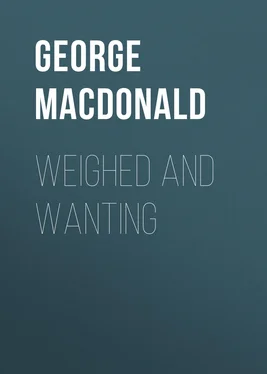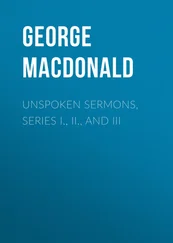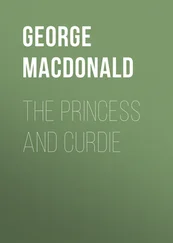George MacDonald - Weighed and Wanting
Здесь есть возможность читать онлайн «George MacDonald - Weighed and Wanting» — ознакомительный отрывок электронной книги совершенно бесплатно, а после прочтения отрывка купить полную версию. В некоторых случаях можно слушать аудио, скачать через торрент в формате fb2 и присутствует краткое содержание. Жанр: foreign_prose, foreign_religion, foreign_antique, на английском языке. Описание произведения, (предисловие) а так же отзывы посетителей доступны на портале библиотеки ЛибКат.
- Название:Weighed and Wanting
- Автор:
- Жанр:
- Год:неизвестен
- ISBN:нет данных
- Рейтинг книги:5 / 5. Голосов: 1
-
Избранное:Добавить в избранное
- Отзывы:
-
Ваша оценка:
- 100
- 1
- 2
- 3
- 4
- 5
Weighed and Wanting: краткое содержание, описание и аннотация
Предлагаем к чтению аннотацию, описание, краткое содержание или предисловие (зависит от того, что написал сам автор книги «Weighed and Wanting»). Если вы не нашли необходимую информацию о книге — напишите в комментариях, мы постараемся отыскать её.
Weighed and Wanting — читать онлайн ознакомительный отрывок
Ниже представлен текст книги, разбитый по страницам. Система сохранения места последней прочитанной страницы, позволяет с удобством читать онлайн бесплатно книгу «Weighed and Wanting», без необходимости каждый раз заново искать на чём Вы остановились. Поставьте закладку, и сможете в любой момент перейти на страницу, на которой закончили чтение.
Интервал:
Закладка:
"Come, come, Franks!" said Mr. Christopher, on one of these outbreaks.
The man stood silent for a moment "like one forbid," then turning to Miss Raymount first, and next to his wife, said, taking of his cap,
"I humbly beg your pardon, ladies. I forgot what company I was in. But bless you, I mean nothing by it! It's only my way. Ain't it now, mates—you as knows the old man?"
"Yes, father; 'tain't nothin' more'n a way you've got," responded the boys all, the little one loudest.
"You don't mind it, do you—knowin' as it's only to make you mind what you're about?"
"No, father, we don't mind it. Go ahead, father," said the eldest.
"But," said Franks, and here interjected an imprecation, vulgarly called an oath, "if ever I hear one o' you a usin' of sich improper words, I'll break every bone in his carcase."
"Yes, father," answered the boys with one accord,
"It's all very well for fathers," he went on; "an' when you're fathers yourselves, an' able to thrash me—not as I think you'd want to, kids—I sha'nt ha' no call to meddle with you. So here goes!"
Casting a timid glance at Hester, in the assurance that he had set himself thoroughly right with her, showing himself as regardful of his boys' manners as could justly be expected of any parent, he proceeded with his lesson from the point where he had left off.
As to breaking the boys' bones, there hardly seemed any bones in them to break; gelatine at best seemed to be what was inside their muscles, so wonderful were their feats, and their pranks so strange. But their evident anxiety to please, their glances full of question as to their success in making their offering acceptable, their unconscious efforts to supply the lacking excitement of the public gaze, and, more than all, the occasional appearance amidst the marvels of their performance, in which their bodies seemed mere india-rubber in response to their wills, of a strangely mingled touch of pathos, prevailed chiefly to interest Hester in their endeavor. This last would appear in the occasional suffering it caused Moxy, the youngest, to do as his father required, but oftener in the incongruity between the lovely expression of the boy's face, and the oddity of it when it became the field of certain comicalities required of him—especially when, stuck through between his feet, it had to grin like a demon carved on the folding seat of a choir-stall. Its sweet innocence, and the veil of suffering cast over its best grin, suggesting one of Raphael's cherubs attempting to play the imp, Hester found almost discordantly pathetic. She could have caught the child to her bosom, but alas! she had no right. She was already beginning to become aware of the difficulty of the question as to when or how much you may interfere with the outward conditions of men, or help them save through the channels of the circumstance in which you find them. The gentle suffering face seemed far from its own sphere, that of a stray boy-angel come to give her a lesson in the heavenly patience. His mother, whose yellow hair and clear gray eyes were just like his, covered her eyes with her hand, though she could not well see him from where she lay, every time he had to do anything by himself.
All at once the master of the ceremonies drew 'himself up, and wiping his forehead, gave a deep sigh, as much as to say, "I have done my best, and if I have not pleased you, the more is my loss, for I have tried hard," and the performance was over.
The doctor rose, and in a manly voice, whose tones were more pleasing to Hester than the look of the man, which she did not find attractive, proceeded to point out to Franks one or two precautions which his knowledge of anatomy enabled him to suggest, with regard to the training especially of the little Moxy. At the same time he expressed himself greatly pleased with what his host had been so kind as to show him, remarking that the power to do such things implied labor more continuous and severe than would have sufficed to the learning of two or three trades. In reply, Franks, mistaking the drift of the remark, and supposing it a gentle remonstrance with what the doctor counted a waste of labor, said, in a tone that sounded sad in the ears of Hester,
"What's a fellow to do, sir, when he 'ain't got no dinner? He must take to the work as takes to him. There was no other trade handy for me. My father he was a poor laborer, an' died early, o' hard work an' many mouths. My mother lived but a year after him an' I had to do for the kids whatever came first to hand. There was two on 'em dead 'atwixt me an' the next alive, so I was a long way ahead o' the rest, an' I couldn't ha' seen them goin' to the dogs for want o' bread while I was learnin' a trade, even if I had had one in my mind more than another, which I never had. I always was a lively lad, an' for want of anything better to do, for my father wouldn't have us go to work till we was strong enough, he said—an' for that matter it turned out well when the hard time came—I used to amuse myself an' the rest by standin' on my head an' twistin' of my body into all sorts o' shapes—more'n it could well ha' been meant for to take. An' when the circus come round, I would make friends wi' the men, helpin' of 'em to look after their horses, an' they would sometimes, jest to amuse theirselves, teach me tricks I was glad enough to learn; an' they did say for a clod-hopper I got on very well. But that, you see, sir, set my monkey up, an' I took a hoath to myself I would do what none o' them could do afore I died—an' some thinks, sir," he added modestly, "as how I've done it—but that's neither here nor there. The p'int is, that, when my mother followed my father, an' the rest come upon my hands, I was able at once, goin' about an' showin' off, to gather a few coppers for 'em. But I soon found it was precious little I could get, no matter what I could do so long as my clothes warn't the right thing. So long as I didn't look my trade, they regarded my best as nothing but a clumsy imitation of my betters, an' laughed at what circus Joe said he couldn't do no better hisself. So I plucks up heart an' goes to Longstreet, as was the next market-town, an' into a draper's shop, an' tells 'em what I wanted, an' what it was for, promisin' to pay part out o' the first money I got, an' the rest as soon after as I could. The chaps in the shop, all but one on em', larfed at me; there's always one, or two p'raps, leastways sech as has been my expearence, sir an' miss, as is better'n most o' the rest, though it's a good thing everybody's not so soft-hearted as my wife there, or the world would soon be turned topsy turvey, an' the rogues have all the money out o' the good folk's pockets, an' them turned beggars in their turn, an' then the rogues wouldn't give them nothink, an' so the good ones would die out, an' the world be full o' nothing but damned rascals—I beg your pard'n, miss. But as I was sayin', though I fared no better at the next shop nor the next, there was one good woman I come to in a little shop in a back street, an' she was a resemblin' of yourself, miss, an' she took an' set me up in my trade, a givin' of me a few remnants o' colored calico, God bless her! I set to with my needle, an' I dressed myself as like a proper clown as I could, an' painted my face beautiful, an' from that time till they was able to do some'at for theirselves, I managed to keep the kids in life. It wasn't much more, you see, but life's life though it bean't tip-top style. An' if they're none o' them doin' jest so well as they might, there's none o' them been in pris'n yet, an' that's a comfort as long as it lasts. An' when folk tells me I'm a doin' o' nothink o' no good, an' my trade's o' no use to nobody, I says to them, says I, 'Beggin' your pardon, sir, or ma'am, but do you call it nothink to fill—leastways to nigh fill four hungry little bellies at home afore I wur fifteen?' An' after that, they ain't in general said nothink; an' one gen'leman he give me 'alf-a-crown."
Читать дальшеИнтервал:
Закладка:
Похожие книги на «Weighed and Wanting»
Представляем Вашему вниманию похожие книги на «Weighed and Wanting» списком для выбора. Мы отобрали схожую по названию и смыслу литературу в надежде предоставить читателям больше вариантов отыскать новые, интересные, ещё непрочитанные произведения.
Обсуждение, отзывы о книге «Weighed and Wanting» и просто собственные мнения читателей. Оставьте ваши комментарии, напишите, что Вы думаете о произведении, его смысле или главных героях. Укажите что конкретно понравилось, а что нет, и почему Вы так считаете.












